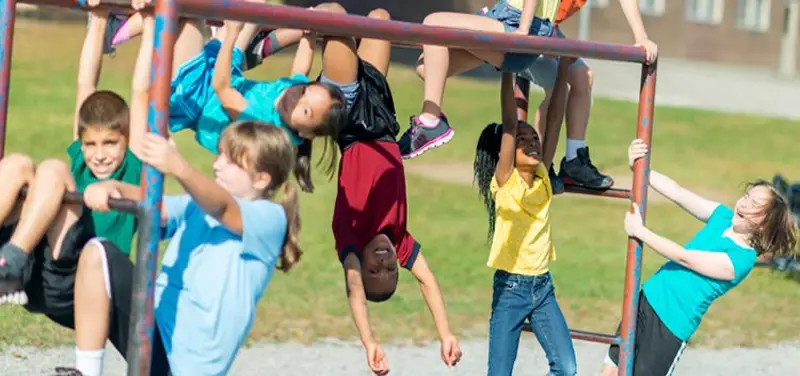Step2 Rain Showers Splash Pond Toddler Water Table, Outdoor Kids Water Sensory Table, Ages 1.5+ Years Old, 13 Piece Water Toy Accessories, Blue & Green
$79.99 (as of April 29, 2024 18:23 GMT +00:00 - More infoProduct prices and availability are accurate as of the date/time indicated and are subject to change. Any price and availability information displayed on [relevant Amazon Site(s), as applicable] at the time of purchase will apply to the purchase of this product.)Play is the universal language of childhood, and through it, children learn valuable social skills that shape their interactions with others throughout life. For toddlers and preschoolers, play serves as a gateway to understanding the world around them and forming meaningful connections with peers.
In this blog post, we’ll explore the importance of play in socialization and provide practical tips for parents and caregivers to foster healthy social development in young children.
The Role of Play in Socialization:
Play is not just a pastime for children; it’s a crucial aspect of their development. Through play, toddlers and preschoolers learn essential social skills such as communication, cooperation, empathy, and problem-solving. Whether it’s engaging in imaginative play with dolls and action figures or building towers with blocks, every play activity offers valuable opportunities for social interaction and learning.
Types of Play that Enhance Socialization:
- Parallel Play: During the toddler years, children often engage in parallel play, where they play alongside each other without direct interaction. While seemingly independent, this type of play helps children observe and imitate others, laying the foundation for more interactive play later on.
- Cooperative Play: As children grow older, they begin to engage in cooperative play, where they collaborate with peers to achieve common goals. This type of play fosters teamwork, negotiation skills, and empathy as children learn to take turns, share resources, and respect others’ perspectives.
- Imaginative Play: Pretend play, such as playing house or pretending to be superheroes, allows children to explore different roles and scenarios, enhancing their creativity and social understanding. Through imaginative play, children practice communication skills, develop empathy, and learn to resolve conflicts in a safe and imaginative environment.
Practical Tips for Fostering Socialization through Play:
- Provide Opportunities for Play: Establish a secure and enriching setting where children can freely explore and engage in play. Allocate specific time each day for play and encourage children to participate in both solo and group activities. This can be especially important in daycare settings in West Jordan, where structured playtime fosters socialization and supports overall development.
- Model Positive Social Behavior: Children learn by example, so demonstrate kindness, cooperation, and empathy in your interactions with others. Use positive reinforcement to praise children for exhibiting desirable social behaviors such as sharing, taking turns, and helping others.
- Encourage Peer Interactions: Arrange playdates with other children to provide opportunities for social interaction and friendship building. Supervise play sessions to ensure a positive and supportive environment, but allow children the freedom to navigate social interactions independently.
- Teach Problem-Solving Skills: Help children develop problem-solving skills by encouraging them to resolve conflicts and negotiate solutions with their peers. Guide them through conflicts calmly and respectfully, emphasizing the importance of listening, compromising, and finding mutually beneficial solutions.
- Celebrate Diversity: Encourage children to interact with peers from diverse backgrounds and cultures, fostering acceptance, tolerance, and appreciation for differences. Use books, toys, and activities that reflect diverse perspectives to promote inclusivity and cultural awareness.
- Limit Screen Time: While technology can offer educational benefits, excessive screen time can interfere with social development. Set limits on screen time and prioritize real-world interactions and play activities that promote socialization and physical activity.
In Conclusion
As parents and caregivers, we want our little ones to grow up happy and healthy, both physically and mentally. This is where play comes in as an incredibly powerful tool for socialization. Be it a simple game of peek-a-boo or building blocks, playing with their peers can help toddlers and preschoolers develop crucial social skills while having loads of fun. By providing ample play opportunities, modeling positive social behavior, and encouraging them to interact with their peers, we can help our children build meaningful relationships that will last a lifetime. So let’s embrace playtime as an essential part of our children’s social development and watch them thrive emotionally and socially.




